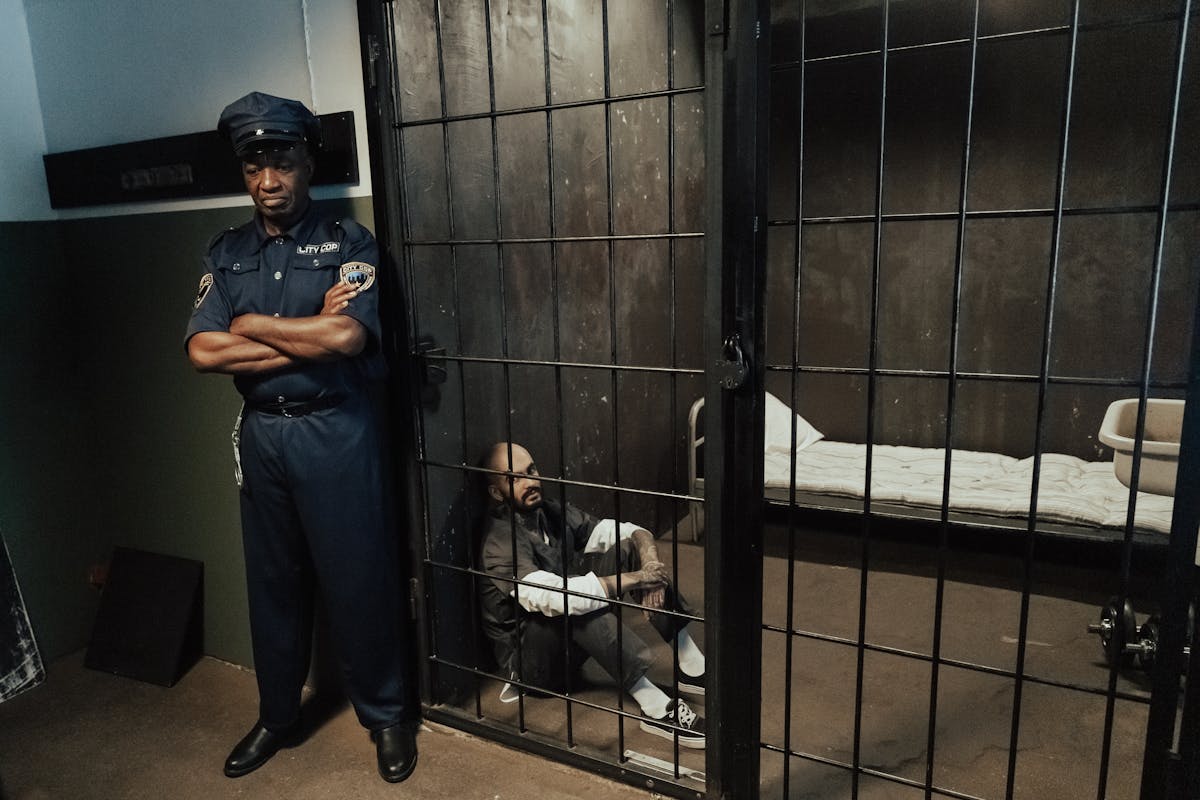In the legal landscape of Arizona, Class 4 felonies hold a unique position, involving a mixture of offenses from property theft to drug possession. The penalties for these crimes, for first-time offenders, can be as severe as 2.5 years of prison time and fines of up to $150,000. Beyond the immediate legal implications, there are long-term effects on employment prospects and civil liberties. With such impactful consequences, it becomes essential to understand the intricacies of Arizona’s Class 4 felonies, their legal implications, and potential defense strategies.
Understanding Arizona’s Felony Classification
In the complex maze of criminal law, Arizona’s felony classification stands out as a meticulously structured system. This system is founded upon two primary components: felony definitions and classification differences.
Felony definitions in Arizona encompass a wide array of serious criminal offenses, from violent crimes such as assault and robbery to non-violent crimes like fraud and embezzlement. These definitions are the first determinant in the classification of felonies, providing a categorical basis that distinguishes the severity of the crime committed.
The classification differences, on the other hand, are what truly underline the sophistication of Arizona’s felony classification system. Felonies are categorized into six classes, with Class 1 being the most serious, usually reserved for murder charges, and Class 6 being the least severe. Class 4, which is the central focus of this discussion, sits comfortably in the middle of this spectrum.
The implications of these classification differences are profound, affecting not only the potential penalties and sentencing guidelines but also the prospects for plea bargaining and other legal maneuvers. Understanding these complexities is essential for any individual traversing Arizona’s criminal justice system.
Common Examples of Class 4 Felonies
As we explore deeper into the specifics of Class 4 felonies, it becomes apparent that this category includes a variety of offenses. Theft offenses, for instance, are often classified as Class 4 felonies in Arizona, particularly when the stolen property’s value falls between $3,000 and $4,000. The severity of the penalty will largely depend on the value of the stolen item, as well as the criminal history of the offender.
Drug possession also falls under Class 4 felonies, specifically when it involves dangerous drugs such as methamphetamine, LSD, and certain types of hallucinogenic substances. However, it is important to note that the amount of the drug in possession also plays a significant role in the classification of the felony. Possession of such drugs for personal use may be considered a Class 4 felony, but possession with the intention to distribute or sell can escalate the crime to a higher felony class.
Other examples of Class 4 felonies encompass crimes such as forgery, identity theft, and certain types of aggravated assault. Each of these crimes carries its own specific set of conditions and circumstances that contribute to its classification as a Class 4 felony.

Legal Consequences for Class 4 Felonies
Class 4 felonies in Arizona come with substantial legal consequences, which are designed to reflect the seriousness of these crimes. Offenders, if found guilty, face severe legal penalties under the state’s stringent sentencing guidelines.
According to Arizona Revised Statutes §13-702(D), a first-time offender convicted of a class 4 felony faces a presumptive prison sentence of 2.5 years, with the possibility of a minimum sentence of 1 year and a maximum sentence of 3.75 years. This range can be influenced by mitigating or aggravating factors presented during the sentencing phase.
Additionally, convicted individuals may be subjected to hefty fines, with a cap of $150,000 per charge excluding surcharges, as per Arizona Revised Statutes §13-801. Probation, restitution to the victim, community service, and mandatory participation in rehabilitative programs are other potential consequences.
The legal consequences extend beyond prison sentences and fines. Convicted offenders could face long-term effects such as loss of certain civil rights, including the right to vote or own firearms, and difficulties in obtaining employment or housing due to a felony record. Consequently, the repercussions of a class 4 felony conviction in Arizona are substantial and far-reaching.
Navigating Defense Strategies in Arizona
Maneuvering the complex legal landscape of Arizona’s class 4 felony charges requires an all-encompassing understanding of viable defense strategies. Largely, these strategies hinge on the effectiveness of legal representation, which can greatly influence the course and outcome of a case.
When facing a class 4 felony charge in Arizona, a strong defense begins with scrutinizing the details of the arrest, the collection and handling of evidence, and the procedures followed by law enforcement. Any deviation or misconduct can be a potential loophole for the defense to exploit, potentially leading to reduced charges or even case dismissal.
The option of plea bargains is also essential in this situation. A well-strategized plea deal can result in lower sentencing or reduced charges, although it requires adept negotiation skills. It’s a complex process where the defendant, with the aid of their legal representation, admits to a lesser offense to avoid the risks of going to trial.
Frequently Asked Questions
How Does a Class 4 Felony Affect Future Employment Opportunities in Arizona?
A Class 4 felony can considerably impact future employment opportunities. Job applications often require criminal background disclosure, potentially leading employers to view such applicants as high-risk, affecting hiring decisions and employment prospects.
What Are the Impacts of a Class 4 Felony on Housing Prospects in Arizona?
A Class 4 felony can greatly impact housing prospects due to potential housing discrimination. Landlords may deny rental applications based on criminal history, leading to limited access to housing for those with such convictions.
Can a Class 4 Felony Conviction Be Expunged From My Record in Arizona?
In Arizona, the expungement process is termed “setting aside a conviction.” Legal eligibility for this process is complex and varies case-by-case. It is recommended to consult with a lawyer for personalized advice.
How Does a Class 4 Felony Impact Child Custody and Visitation Rights in Arizona?
In Arizona, child custody and visitation rights can be greatly impacted by a felony conviction. Courts prioritize child safety, potentially limiting or denying rights if a parent has a Class 4 felony record.
Are There Any Programs Available to Help Rehabilitate Class 4 Felony Offenders in Arizona?
Yes, Arizona offers rehabilitation programs aimed at reducing recidivism. Available resources include substance abuse treatment, vocational training, and offender support services designed to aid the reintegration process for individuals convicted of felonies.





